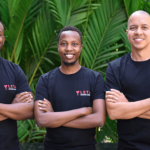Achille Arouko, founder and CEO of financial technology startup Bujeti, has slammed Africa’s AI startups for lacking real-world impact. He issued a rebuke of the growing trend of what he described as “impactless AI” startups across Africa.
In a post published on his LinkedIn page on Friday, July 11, 2026, Arouko called on investors and entrepreneurs to shift focus from buzzwords and aesthetics to solving the continent’s most urgent problems in agriculture, education, and healthcare.
“Africa doesn’t need more AI hype. We need tools that feed, teach, and heal. Africa doesn’t need another startup impactless “AI-powered” just to look shiny in a pitch deck,” Arouko wrote.
The post has since gone viral in the Africa’s AI startups and tech circles, garnering widespread attention for its critique of the industry’s current direction.
Thousands of Startups, Few Tangible Results
According to Arouko, nearly 4,000 Africa’s AI startups have emerged in the past five years. While acknowledging the growth as a sign of momentum, he questioned the substance behind many of these ventures.
He argued that too many are building solutions that look “cool on paper” but fail to improve lives in meaningful ways.
“In the past five years, nearly 4,000 AI startups startups have popped up across the continent. Many of them are building things that look cool on paper but don’t help a farmer, don’t teach a child, and don’t save a mother’s life,” his post said.
He pointed to longstanding development challenges—such as food insecurity, poor access to healthcare, and low education quality—as areas where innovation should be directed.
“But we keep clapping for the next “AI for prettier photos” app or another tool helping a startup do what it already could do with common sense,” he said.
In a metaphor, Arouko described the life of a rural farmer in Kano, Nigeria, or Eldoret, Kenya—someone who has little interest in AI terminology but urgently needs practical tools to survive and thrive.
He extended the argument to education and healthcare, advocating for low-cost devices that deliver lessons in local languages, as well as diagnostic tools that can support rural clinics in identifying symptoms early.
A Call to Investors
Arouko’s post also served as a pointed message to venture capitalists and startup accelerators. He urged them to prioritise startups building “real-life solutions” over those who use AI as a trendy label to attract funding.
“If you’re picking startups to support, pick the ones building real life solutions, not just the ones with fancy buzzwords,” he said.
“We need to build solutions that feed people, keep them healthy, and give them a chance to learn. And there are incredible Africans already doing this with AI today.”
To highlight this, Arouko revealed that he had compiled a map of African innovators who are already using AI to address food security, improve classroom learning, and enhance primary healthcare delivery.
Counter Responses
However, the post did not go unchallenged. Fatu Ogwuche, founder of Big Tech This Week, offered a widely circulated counterpoint, pushing back against Arouko’s framing and calling attention to the limitations of private companies.
“What you’ve described is the job of the government, not a startup,” Ogwuche wrote in the comments section. “Governments are responsible for providing infrastructure for agriculture, education, and health.”
Ogwuche noted that startups that once attempted to subsidise education or rural health delivery often found themselves forced to pivot due to unprofitability. She warned against placing the burden of public service on private actors.
“Startups can try to provide infrastructure for the things you’ve listed, but it’s not their responsibility. If we keep encouraging governments to shirk their constitutional responsibility by passing the buck to startups with rhetoric like this, we will have a lifetime of administrations that run on vibes, hoping startups pick up the slack,” she added.
Another tech founder, Chioma Nnanna, CEO of MendPro, didn’t mince words in her own response to Arouko’s post. She interpreted the remarks as more of a branding attack than a call to action.
“This is giving serious hater energy,” she wrote. “If you put as much effort into marketing your solution, you wouldn’t even have to make posts like this. Do better.”
A Call for Impact
Arouko concluded his LinkedIn post with an urgent call to action aimed at both builders and funders in Africa’s AI startups innovation ecosystem.
“For Africa, AI should mean closing the gap in food security, education, and healthcare, not just making pictures prettier,” he wrote.
He also invited founders using AI in practical sectors like farming, health, and education to publicly share their stories—arguing that these are the ventures that will ultimately shape Africa’s future.
According to experts, his message arrives at a time when African nations are investing more in AI research and policy, but concerns remain over whether the technology is being used to address the continent’s most pressing challenges.
Talking Points
Achille Arouko’s call for AI solutions that “feed, teach, and heal” raises timely questions about the purpose of innovation in Africa’s startup ecosystem. His critique challenges both founders and investors to re-centre development, not optics, as the metric of impact.
At Techparley, we see this moment as a chance to reframe what meaningful innovation looks like in Africa. Practical AI, used to protect harvests, deliver basic education, or support rural health workers, may not be flashy, but it’s transformative.
However, the backlash to Arouko’s post also reveals a deeper tension. Founders like Fatu Ogwuche are right to point out that governments, and not startups, are constitutionally tasked with providing infrastructure. Expecting startups to fill that vacuum risks normalising state failure.
Chioma Nnanna’s criticism also surfaces an uncomfortable truth in the ecosystem: startup critique is often mistaken for personal attack. Yet, hard conversations about purpose, priorities, and profit need to happen if the sector is to grow with integrity.
This debate underscores a pivotal shift: Africa’s tech ecosystem must decide whether it’s building for validation or for value. Arouko’s post, and the response it triggered, reminds us that substance, not slogans, will shape the continent’s future.





